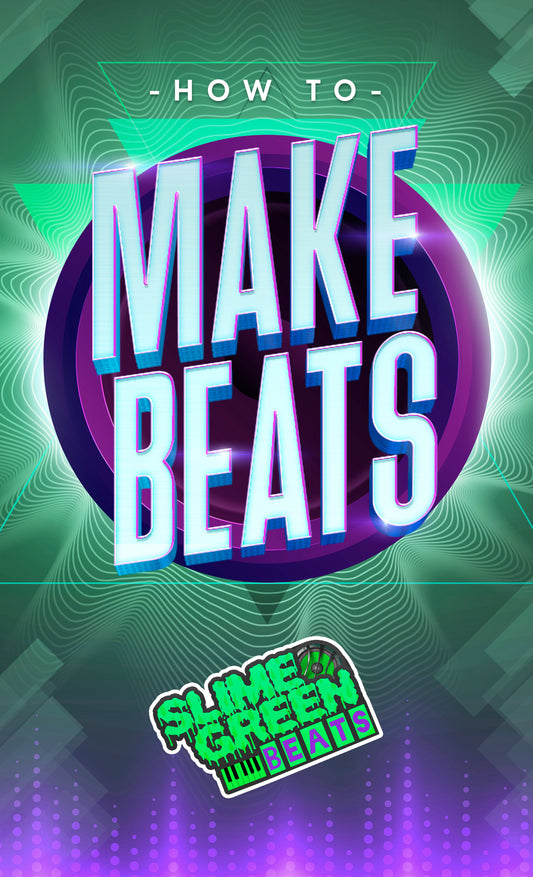In modern film scoring, composers use portable setups. They capture unique sounds in diverse locations. This enriches the film's audio.
We'll delve into the details of music production for film scoring. We'll explore the basic concepts, the key tools, and the creative processes. These make music a key part of film storytelling. You may be a seasoned composer or just starting out. This article aims to explain the techniques and resources that can make your film scoring better. It will focus on the unique offerings at Slime Green Beats.
Understanding the Basics of Film Scoring
Film scoring is the art and craft of creating original music to accompany a film. The score complements the narrative, characters, and emotions on screen. It enhances the storytelling but doesn't overshadow it. The music is pivotal. It sets the tone, mood, and pace of the movie. It guides the audience's emotions through the journey.
The relationship between visuals and music in film is symbiotic. Music has the power to transform scenes. It adds layers of meaning and depth that visuals alone cannot convey. It can signal impending danger, highlight a moment of joy, or underscore the subtlety of a character's internal conflict. Film scoring is crucial for filmmaking. It requires deep understanding of the story and its emotions.
The Role of Music Production in Film Scoring
Film scoring involves more than writing melodies. It includes creating, recording, mixing, and mastering the music for the film. This process shapes the emotional and narrative aspects of a film, making it an indispensable tool for filmmakers.
Sound design, for instance, plays a critical role in building the film's atmosphere. It involves creating auditory elements that enhance the realism of a scene or contribute to the film's imaginary world. Music themes are different. They are recurring musical motifs linked to characters, locations, or ideas. They add meaning and continuity to the story.
The impact of music production on film scoring cannot be overstated. Technology has advanced. Composers now have many tools. They can use them to make complex and rich soundscapes. These can elevate a film from good to unforgettable.
Key Tools and Software for Film Scoring
In the realm of film scoring, Digital Audio Workstations (DAWs) are the cornerstone of music production. Programs like Logic Pro, Cubase, and Pro Tools offer composers a powerful platform. They can use it for recording, editing, and mixing their compositions. These DAWs are aided by virtual instruments, sample libraries, and plugins. They offer a wide range of sounds. These go from orchestral instruments to synthetic textures.
Virtual instruments allow composers to access realistic sounds. They include pianos, strings, brass, and more. They remove the need for live recordings. Sample libraries offer pre-recorded musical phrases and elements that can be manipulated and integrated into the score. Plugins, such as reverbs, delays, and synthesizers, enhance film scores. They add to the sonic landscape and allow for creative exploration and innovation.
Collaboration between Composers and Filmmakers
The collaboration between composers and filmmakers is fundamental to the success of a film score. Understanding the director's vision is crucial. So is understanding the narrative's emotional beats. This understanding is crucial for creating a score that complements the film. This partnership relies on clear communication. It also relies on mutual respect and a shared commitment to storytelling.
Successful collaborations often involve the composer's early involvement in filmmaking. They involve discussions about the narrative's themes and the characters' emotional journey. Composers and filmmakers can work closely together. They can ensure that the music is a seamless part of the film's storytelling. It enriches the cinematic experience.
Resources for Aspiring Film Composers
For those embarking on the journey of film scoring, Slime Green Beats offers a wealth of resources. The Beats for Sale page is a goldmine for producers looking for unique beats to inspire their next project. For composers seeking distinctive soundscapes, the Free Melody Loops Pack provides a variety of textures and tones to experiment with.
Furthermore, the Hip-Hop Beatmaking Beginner Guide is an excellent resource for those new to music production, offering insights into the basics of beatmaking and production techniques. These resources are tools for creation. They are also educational materials. They enhance skills in music production for film scoring.
Tips and Techniques for Effective Film Scoring
Crafting good film scores requires more than technical skills. It needs creativity, intuition, and a deep understanding of storytelling. Here are a few tips and techniques for composers looking to enhance their film scoring projects:
Crafting Themes: Develop memorable themes for characters, locations, or significant plot points. These motifs can evolve throughout the film to reflect changes in the narrative or characters.
Enhancing Mood and Tension: Use music to build suspense, convey tranquility, or heighten emotional moments. Changes in tempo, volume, and instrumentation can significantly impact the scene's mood.
Using Silence: Sometimes, the absence of music can be as powerful as its presence. Silence can heighten tension, focus attention, or provide a moment of reflection for the audience.
Conclusion
Music production for film scoring is a dynamic and integral part of the filmmaking process. It needs a mix of technical skills, creativity, and a deep narrative understanding to make a score that resonates with the audience. Resources like Slime Green Beats give aspiring composers access to tools and knowledge. These can support their journey in film scoring.
As we conclude this exploration into music production for film scoring, it's clear that the power of music in film is undeniable. It shapes our understanding, influences our emotions, and enhances our cinematic experience. For those looking to delve deeper into this fascinating field, Slime Green Beats offers a gateway to discovering the potential of music to bring stories to life.
FAQ: Music Production for Film Scoring
Q1: What is film scoring? Film scoring involves creating original music to accompany a film. The score enhances the narrative, supports the emotional journey of the characters, and sets the tone of the movie.
Q2: Why is music production important in film scoring? Music production shapes the feelings and story of a film. It does this through making, recording, mixing, and mastering music. It is crucial. It enhances the film's atmosphere, develops themes, and ensures the music fits the visual storytelling.
Q3: What tools are essential for film scoring? Digital Audio Workstations (DAWs), virtual instruments, sample libraries, and plugins are essential tools. DAWs like Logic Pro, Cubase, and Pro Tools are used for composing, while virtual instruments and samples provide a range of sounds necessary for creating a diverse score.
Q4: How do composers and filmmakers collaborate on a film score? Collaboration involves clear communication of the film's vision, narrative themes, and emotional beats. Composers may join the project early to understand the storyline and work closely with the filmmaker to ensure the music aligns with the film's tone and direction.
Q5: Where can I find resources to get started with film scoring? Slime Green Beats offers a variety of resources, including Beats for Sale, a Free Melody Loops Pack, and educational content like the Hip-Hop Beatmaking Beginner Guide to help aspiring composers begin their journey in film scoring.
Q6: What are some tips for creating an effective film score? Focus on crafting memorable themes for characters and settings, use music to enhance mood and tension, and consider the impact of silence. Try different instruments and textures. They will support the film's story and emotion.
Q7: Can I learn film scoring without formal education? Yes, many resources and online tutorials are available for those looking to learn film scoring without formal education. Platforms like Slime Green Beats provide useful materials and guides. They help beginners understand music production and film scoring.
Q8: How important is sound design in film scoring? Sound design is crucial in building the film's atmosphere and realism. It works with the musical score. It creates a cohesive sound experience. This enhances the storytelling and emotional impact of the film.








